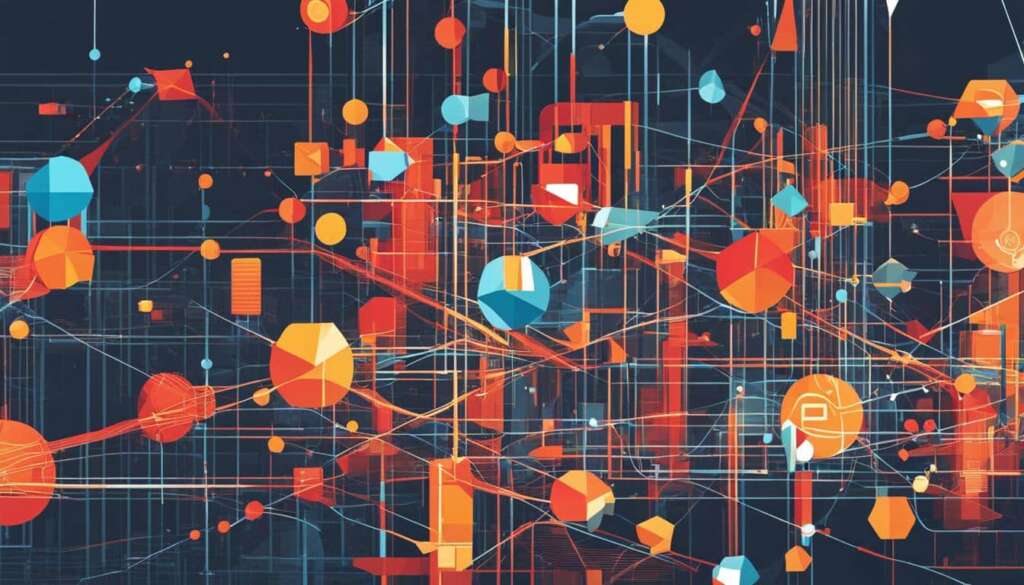Table of Contents
ChatGPT, a powerful AI chatbot, has gained significant attention for its impressive capabilities. However, it is important to delve into the drawbacks and limitations of ChatGPT to better understand the challenges associated with this AI technology.
From security breaches and privacy concerns to incorrect answers and biases, there are valid reasons why ChatGPT is considered bad. These concerns raise ethical, legal, and practical questions that must be addressed.
In this article, we will explore the various disadvantages of ChatGPT, exposing the problems and limitations of this AI chatbot. By recognizing the limitations and working towards solutions, we can ensure the responsible and beneficial use of AI systems.
Security Threats and Privacy Concerns
One of the major concerns with ChatGPT is its potential for security breaches and privacy issues. OpenAI, the company behind ChatGPT, retains users’ chat history and shares data with select third-party groups.
In March 2023, a security breach occurred, leading to some users seeing unrelated conversation headings. This breach raised significant privacy concerns, leading to Italy banning ChatGPT and requesting changes to reinstate the chatbot.
Although OpenAI made improvements, such as adding age restrictions and making the Privacy Policy more visible, there is still a need for further enhancements to protect the privacy and security of all ChatGPT users.
| Security Threats | Privacy Concerns |
|---|---|
| Data breaches | User data retention |
| Unauthorized access | Sharing data with third parties |
| Cyberattacks | Lack of transparency |
Concerns Over ChatGPT Training and Privacy Issues
Critics have questioned the way ChatGPT was trained and its potential privacy violations. OpenAI scraped public data from the internet to train ChatGPT, raising questions about compliance with GDPR regulations in Europe. Concerns have been raised about the use of personal information without clear consent. Additionally, artists have voiced concerns about their work being used without consent. The lack of transparency regarding training data and the system’s architecture raises ethical and legal concerns. OpenAI needs to address these issues and provide more clarity on its training methods to ensure compliance and protect user privacy.
Questions on Data Training Methods
ChatGPT’s training methods have been a subject of criticism due to concerns about data privacy. OpenAI trained ChatGPT using publicly available data from the internet, but questions remain about the specific sources and adequacy of the data used. By scraping information from diverse sources without clear consent processes, there is a risk of unintentional data misuse and privacy breaches.
“The lack of transparency and clear data sourcing by OpenAI raises serious concerns about ensuring privacy and consent in the development and training of AI systems.”
Moreover, the potential GDPR compliance issue stemming from data training without explicit consent poses legal challenges for using ChatGPT in European countries. It’s essential for OpenAI to ensure that their data training methods align with privacy laws and regulations, such as the GDPR, to protect user privacy rights.
Privacy Concerns and User Consent
Privacy concerns also arise from the use of personal information without clear consent in the training and operation of ChatGPT. OpenAI’s practice of retaining users’ chat history has raised questions about data privacy and security. Users may have reservations about their conversations being stored and potentially accessed by third parties.
- The lack of clarity regarding how long user data is retained and how it is anonymized or pseudonymized further intensifies privacy concerns.
- Critics argue that OpenAI needs to establish clear practices and policies to ensure the protection of user data and comply with data privacy laws.
Furthermore, artists and content creators have expressed concerns about unauthorized use of their work by ChatGPT. Without explicit consent mechanisms and proper attribution, there is an infringement on intellectual property rights. OpenAI must address these concerns and establish robust processes to obtain consent and respect the rights of creators.
The Need for Transparency and Accountability
The lack of transparency surrounding ChatGPT’s training data and system architecture raises ethical concerns. Users and experts need to understand how the AI model was trained and what biases or inadvertent discriminatory tendencies may be embedded in its responses.
OpenAI should provide detailed information about the data sources, selection criteria, and preprocessing steps to ensure transparency and accountability. By disclosing this information, OpenAI can address concerns related to bias, discrimination, and discriminatory behaviors in ChatGPT.
The Way Forward for OpenAI
To address the concerns over training methods and privacy, OpenAI needs to take proactive measures:
- Enhance transparency: OpenAI should provide clear documentation on ChatGPT’s training data sources and disclose any potential biases or limitations.
- Strengthen privacy measures: OpenAI should review and revise their data retention policies and implement robust consent mechanisms to protect user privacy.
- Respect intellectual property: OpenAI should ensure that content creators’ rights are respected by obtaining proper consent and providing appropriate attribution.
- Engage with stakeholders: OpenAI should actively seek feedback from users, experts, and regulators to address concerns and improve the overall trustworthiness of ChatGPT.
By addressing these concerns, OpenAI can make strides towards building a more transparent, privacy-conscious, and ethically sound AI system.
ChatGPT Generates Wrong Answers
One significant limitation of ChatGPT is its tendency to generate incorrect answers. It often fails at basic math, struggles with logical questions, and even argues for completely incorrect facts. OpenAI acknowledges this limitation, stating that ChatGPT can sometimes produce plausible-sounding but incorrect or nonsensical answers. This is especially concerning when it comes to important areas such as medical advice or historical events. Despite efforts to improve ChatGPT’s accuracy, it still falls short, leading to potential misinformation and the spread of false information.
When it comes to critical information like medical advice, the consequences of ChatGPT generating incorrect answers can be serious. Users seeking accurate and reliable guidance may unknowingly receive incorrect information, potentially making decisions that could negatively impact their health. Moreover, in the case of historical events or important facts, the dissemination of wrong answers can contribute to the spread of misinformation.
The Consequences of Incorrect Answers
Let’s explore some specific examples of the potential consequences when ChatGPT generates wrong answers:
- Medical Advice: Imagine a patient seeking guidance on a specific symptom or condition. If ChatGPT provides incorrect medical advice, it could lead to misdiagnosis or inappropriate treatment, potentially putting the person’s health at risk.
- Academic Research: Students relying on ChatGPT for information during their studies may unknowingly include incorrect facts or arguments in their assignments, negatively affecting their grades and credibility.
- Financial Decisions: In the realm of finance, inaccurate answers from ChatGPT could lead investors astray, causing them to make ill-informed decisions that result in financial losses.
OpenAI has been actively working to improve ChatGPT’s accuracy, but eliminating all incorrect answers remains a complex challenge. The inherent limitations of language models, combined with the vastness of information and the ever-evolving nature of knowledge, make it difficult to ensure 100% accuracy.
“We recognize that our models will still sometimes respond to inputs in ways that people find objectionable or surprising. We’re dedicated to addressing these kinds of issues and reducing both subtle and glaring biases in how ChatGPT responds.”
ChatGPT’s ability to generate incorrect answers highlights the importance of critical thinking and the need to verify information from reliable sources. Users must exercise caution and employ their judgment when interacting with AI models like ChatGPT.

Despite these concerns, there are steps OpenAI can take to mitigate the generation of incorrect answers and minimize the spread of misinformation:
- Continuously refine and improve the training process, incorporating diverse and reliable sources of information.
- Implement a robust feedback system for users to report incorrect answers, enabling OpenAI to identify patterns and address common errors.
- Enhance the model’s ability to detect and flag potential inaccuracies before generating a response.
By addressing the issue of incorrect answers, OpenAI can contribute to the responsible and ethical development of AI technology, ensuring that users can rely on AI systems for accurate and reliable information.
ChatGPT Has Bias Baked Into Its System
ChatGPT, like many AI models, can display biases stemming from the data it was trained on. The model was trained on written text created by humans, which means it can inadvertently produce discriminatory responses. OpenAI acknowledges this issue and encourages users to flag and report biased outputs. However, the responsibility also lies with OpenAI to ensure that the training data selection is fair and unbiased. It’s crucial to address and mitigate these biases to prevent harm and discrimination in AI-generated content.
The Impact of ChatGPT Bias
The biases found in ChatGPT’s behavior have significant implications, particularly in areas such as customer support and content generation. Imagine a scenario where an AI chatbot delivers biased responses to customer inquiries or an AI-generated article perpetuates discriminatory narratives. These instances not only contribute to misinformation but also reinforce harmful stereotypes and prejudices.
Research has shown that biased AI systems can perpetuate and amplify existing societal biases. It is essential to understand and address these biases to ensure equitable and fair interactions with AI technologies.
OpenAI’s Approach to Bias Mitigation
OpenAI is actively working to address the issue of bias in ChatGPT. The company recognizes the importance of transparently addressing biases and constantly improving its systems. OpenAI has made efforts to provide clearer guidelines to human reviewers to avoid potential pitfalls and challenges related to bias. They also plan to allow users to customize ChatGPT’s behavior within certain ethical bounds.
To further combat bias, OpenAI is investing in research and engineering to reduce both glaring and subtle biases in ChatGPT’s responses. With ongoing collaboration and feedback from users, experts, and the wider community, OpenAI intends to make significant progress in mitigating biased behavior in AI systems.
Users’ Role in Bias Detection
OpenAI encourages users to actively participate in detecting and reporting biased outputs generated by ChatGPT. By flagging and reporting instances of bias, users can help OpenAI identify and rectify problematic behaviors. This collaborative effort is instrumental in holding AI systems accountable and driving improvements to ensure fairness and inclusivity.
Examples of ChatGPT Bias Mitigation Efforts
| Bias Mitigation Efforts | Description |
|---|---|
| Improved Guidelines | OpenAI provides clearer instructions to human reviewers to avoid favoring any political group during the training process, minimizing potential biases. |
| User Feedback Loop | OpenAI actively invites user feedback to uncover biases and takes necessary steps to rectify them, making ongoing refinements to improve the system’s fairness. |
| Technological Enhancements | OpenAI is continuously investing in research and engineering to develop technical solutions that mitigate both blatant and subtle biases in ChatGPT’s responses. |
OpenAI’s commitment to addressing bias in ChatGPT is evident through its efforts to improve guidelines, actively seek user feedback, and develop technological enhancements. By working together, users and OpenAI can create a more inclusive and unbiased AI ecosystem.
The Importance of Ethical AI Development
As AI technology continues to evolve, it is vital to prioritize ethical considerations throughout the development process. By addressing biases and ensuring fairness, AI systems like ChatGPT can be valuable tools rather than perpetuators of discrimination. OpenAI’s commitment to transparency, user feedback, and ongoing improvement is a step towards building more responsible and unbiased AI systems.
Conclusion
ChatGPT, despite its impressive capabilities, is not without its flaws and concerns. The security and privacy issues surrounding the AI chatbot have raised serious questions about data breaches and user privacy. While OpenAI has made efforts to address these concerns, further improvements are necessary to safeguard the personal information of users.
Additionally, the tendency of ChatGPT to generate incorrect answers is a limitation that cannot be overlooked. The potential for misinformation, especially in critical areas like medical advice or historical facts, poses a significant challenge. Accuracy and reliability are crucial factors that need to be addressed to enhance the quality of ChatGPT’s responses.
Furthermore, the bias that can be manifested in ChatGPT’s responses is another problematic aspect. Recognizing and addressing these biases is essential to ensure fair and unbiased communication. OpenAI, as the developer of ChatGPT, has a responsibility to mitigate any discriminatory behaviors and promote an inclusive user experience.
As AI technology continues to evolve, it is imperative to confront these concerns to ensure the responsible and ethical use of AI systems. By acknowledging the limitations of ChatGPT and actively working towards solutions, we can harness the power of AI while mitigating potential risks. Through ongoing research and development, we can strive for a future where AI chatbots like ChatGPT can better serve users, respecting their privacy, providing accurate information, and promoting fairness and inclusivity.
FAQ
What are the concerns surrounding ChatGPT’s security and privacy?
ChatGPT has faced security breaches and privacy issues, including a significant breach in March 2023. OpenAI, the company behind ChatGPT, retains users’ chat history and shares data with select third-party groups. Users’ privacy and security are valid concerns that need further enhancements.
How does ChatGPT’s training and privacy raise concerns?
ChatGPT was trained using scraped public data from the internet, leading to questions about compliance with GDPR regulations in Europe and concerns about using personal information without clear consent. Artists have also expressed concerns about their work being used without proper consent. OpenAI needs to provide more clarity on its training methods and ensure compliance to protect user privacy.
Does ChatGPT generate incorrect answers?
Yes, ChatGPT has limitations and often generates incorrect answers, including basic math errors and illogical responses. OpenAI acknowledges this problem and works to improve accuracy, but misinformation and false information can still be spread through ChatGPT.
Does ChatGPT display biases?
Like many AI models, ChatGPT can display biases due to the training data it was exposed to. It can inadvertently produce discriminatory responses. OpenAI encourages users to report biased outputs, but responsibility also lies with OpenAI to ensure fair and unbiased training data selection to prevent harm and discrimination.
Is ChatGPT perfect despite its concerns?
No, ChatGPT, like any AI model, has serious concerns that raise ethical, legal, and practical issues. These drawbacks need to be addressed to ensure responsible and beneficial use of the technology.












